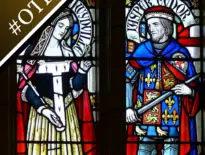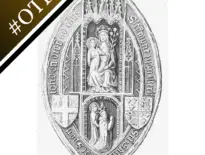On this day in Tudor history, 20th December, Catherine Howard's step-grandmother begged Henry VIII for forgiveness (1541), and Edward Arden was hanged, drawn and quartered for allegedly plotting with his son-in-law to kill the queen (1583)...
- 1541 – A “very sickly” Agnes Tilney, Dowager Duchess of Norfolk, who was imprisoned in the Tower of London after the fall of her granddaughter, Catherine Howard, begged Henry VIII for forgiveness. She also confessed to having another £800 hidden at Norfolk House. See video
- 1558 – Death of John Holyman, Bishop of Bristol and Rector of Hanborough in Oxfordshire. He was buried at Hanborough Church, in the chancel.
- 1559 – Burial of John Bekinsau (Beckinsau), scholar and theologian, at Sherborne St John in Hampshire. Bekinsau was the author of the 1546 tract De supremo et absoluto regis imperio in support of Henry VIII's supremacy.
- 1562 – Death of Margaret Kitson (other married name Bourchier and née Donnington), Countess of Bath. She was buried at the church in Hengrave, near Bury St Edmunds in Suffolk, which was near Hengrave Hall, the Kitson family seat. Margaret was the second wife of merchant adventurer Sir Thomas Kitson.
- 1571 – Death of Richard Butler, 1st Viscount Mountgarret and son of Piers Butler, 1st Earl of Ossory and 8th Earl of Ormond. He was buried in St Canice's Cathedral, Kilkenny city.
- 1583 – Execution of Edward Arden, conspirator, at Smithfield. He was hanged, drawn and quartered after being convicted of high treason for plotting with John Somerville to kill Elizabeth I. Like Somerville, his body was buried at Moorfields and his head displayed on London Bridge. See video below.
- 1606 – Death of Richard Reynolds (Rainolde), clergyman and author, in Essex. His work included the 1563 “ A booke called the foundacion of rhetorike, because all other partes of rhetorike are grounded thereupon” and “ A chronicle of all the noble emperours of the Romaines … setting forth the great power, and devine providence of almighty God, in preserving the godly princes and common wealthes” (1571).



Leave a Reply